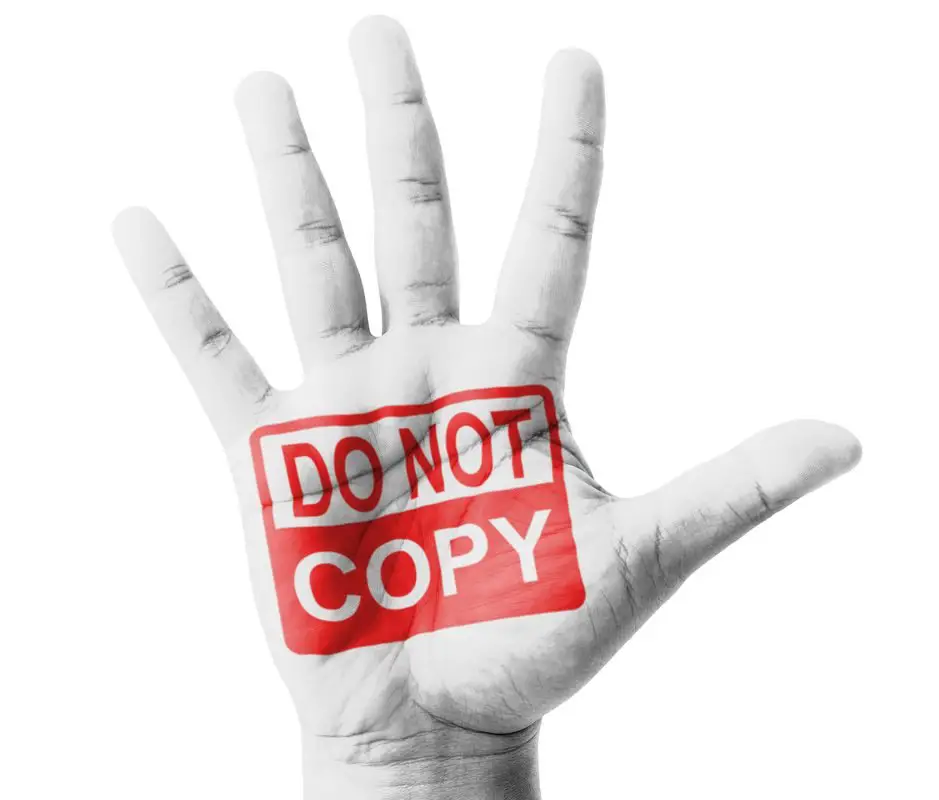Students, especially freshmen, are often unaware of what plagiarism is and how to avoid it. Plagiarism can get you in trouble with your professor and could even result in expulsion from school. But for those who aren’t as well versed as the rest, it’s important to understand that plagiarism is simply using someone else work as your own without giving them any credit.
It may seem harmless enough now; however, plagiarizing has been known to lead to expulsion from school and even prison time.
Plagiarism is such an activity that, without proper guidance, doesn’t get identified easily, but many people get caught by the plagiarism scanners while submitting their paper or project on time.
Both students and teachers should be aware of the proper way to avoid plagiarism. Plagiarism is not just presenting someone else’s work as your own, but it even shows some of the work in different words or phrases.
To avoid any duplication, one must follow these simple steps:
Approach the book or article holding the other view
If you need to write an essay on a specific topic, you should first read the books and articles written by people who hold another view. This will help you in writing your essay against them convincingly.
Avoid copying sentences
You must never copy sentences and words from the book or article that you are reading.
You have to paraphrase it by looking at other aspects of the argument. This will help you write a completely new and unique essay on your own.
Avoid using quotations
When you directly quote somebody, the reader will likely assume what you have written in your work. If you want to avoid such misunderstandings and accusations related to plagiarism, then it is better not to use any direct quotes in your essay while writing about another person’s views.
Don’t make it a habit of giving too much credit. If you’re unsure whether or not something is okay to use as your work, ask the person you’re quoting for permission first.
Not only is this better than being caught plagiarizing, but it’s also good manners. If nothing else, at least you’ll have learned that there are people out there who value your work and want to be included in it.
Avoid making notes on the margins of your book or article
Keeping track of what you read is very important as it will help you avoid plagiarism. However, do not make notes on the margin page, which might lead to duplication and misunderstanding.
Instead, keep a separate notebook for making notes about different books and articles. After reading each book or article, copy the notes into that notebook and use that information later.
Never submit anybody’s essay as your own
Do not ever take help from other people’s essays, even if you are allowed to do so because this might lead to serious legal and ethical issues related to plagiarism.
Many universities and colleges provide their students with guidelines that prohibit them from taking help from other people’s essays.
Never use someone else work as if it were your own without their permission. That’s right – not even if the other person is a prominent celebrity like Shakespeare.
The worst part of all is that it might not even be the work in its original form anymore; more likely than not, it’s been changed around to what you need it to say.
Watch video on how to avoid plagiarism tips
Read books on writing
Different authors also discuss several important concepts related to writing in detail. If you want to raise your ability to write good essays, you should begin by reading books written by ample authors on the subject.
By doing so, you will develop an understanding of good writing skills and avoid plagiarism.
Rewrite your essay
One of the most critical tasks in avoiding plagiarism is rewriting. Even if you change just 2 or 3 words, it might completely change the meaning of your sentence.
You must rewrite each paragraph of your essay at least 3-4 times to make sure that there is no duplication and the content of your essay has a nice flow.
Re-read your essay
After writing an essay, allow it to rest for some time before going through it again. This will help you identify any errors you might have committed while writing the first draft of your essay.
To avoid mistakes related to plagiarism, you must read your essay at least 3 times before submitting it.
Know the difference between paraphrasing and plagiarism. Paraphrasing is quoting another’s work without giving credit, while plagiarism is taking their work and claiming it as your work without giving them any respect for it.
Paraphrasing is usually acceptable when published material is used, though this does depend on the context.
As an example, if you’re writing an essay about a play in which many characters are quoted (as long as they aren’t mentioned individually), then it would be acceptable to use direct quotes from that play.
If you were to write in the same context about a play from years ago that isn’t available anymore, and you wanted to give credit where credit is due, then it would be wrong to use quotes.
Put direct sources in brackets
Source information can be used for several different purposes: notifying the reader of what you’re doing, showing where you got your information from, and making sure your work is original. By putting source material in brackets (like this: [ or [1]), you can say: “I used the sources provided here to make this paper.
Ensure all information is accurate. There are times when we have done our research and feel confident about what we have written down on our page or paper – and then we find out later that it was inaccurate.
If this happens, always do your best to change the material so that you remain to be academically honest and relevant.
Don’t use paraphrasing words like “it could be said that…” or “it seems obvious that…”. They call these words hedges because they hedge you away from your claim, making the sentence weaker than it should be.
Use an online tool to check for plagiarism
There are several online tools available today, which can be used to estimate the percentage of plagiarized content in any given document. These tools are of great help and can be used to identify and rectify any mistakes related to plagiarism.
Know your audience (or don’t). It’s crucial to know whether or not you are writing for a highly educated audience or one that doesn’t grasp statistics and data.
If your paper is based on facts, make sure that you have used those facts correctly and provided information for them instead of giving your opinion about the situation.
But if your paper is based on your personal opinions, be sure to understand what that audience is like.
The same applies to the type of paper you’re writing – if you’re writing a creative piece, make sure that it’s suitable for a more creative audience (though of course, this is difficult to do sometimes!).
Be honest and ethical! We all like to stretch the truth now and then (including ourselves, in the process), but plagiarism is wrong. It’s stealing intellectual property, which you cannot do if you value your work or that of others. Be honest in your work, and treat it with respect.
Be your judge
Never rely on what other people think about your essay or work; instead, be your judge. Once you have written the final version of the essay, go through it one more time before submitting it. This will assist you in avoiding any errors or issues related to plagiarism.
In Conclusion
Plagiarism is challenging to avoid when learning a new topic or coming up with a new idea. Make sure that your research is complete and well-published so that there’s nothing to worry about in the future. Source papers from reliable academic sites, especially ones that detail sources for authors who have cited their works.
Check Out Our Recent Post Below





